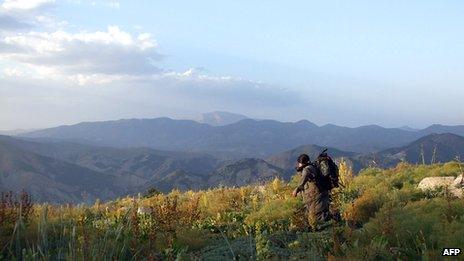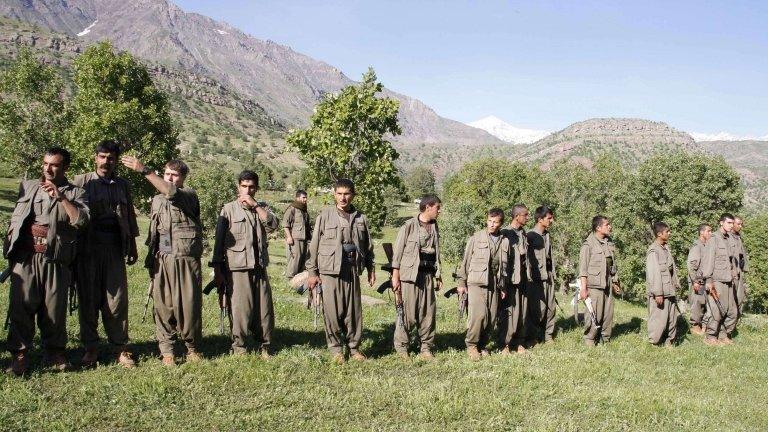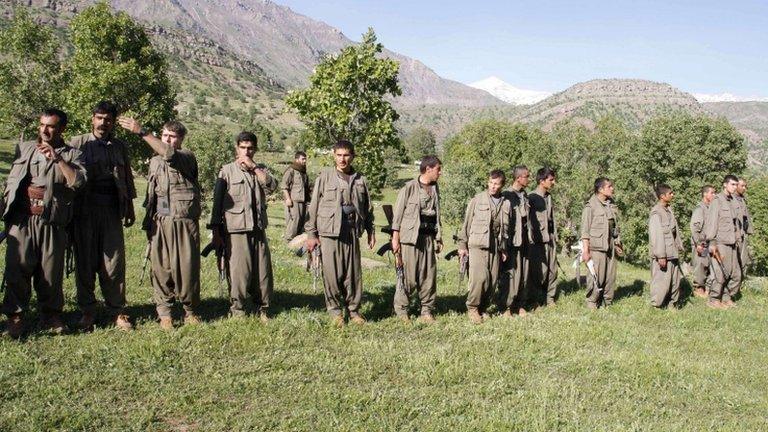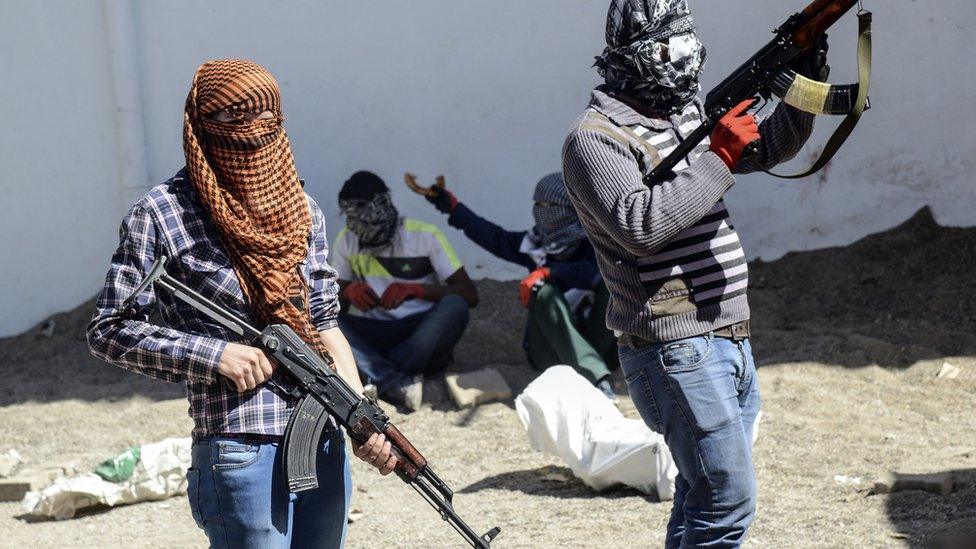Kurdish PKK rebels tell Turkey to implement reforms
- Published

The PKK has been fighting Turkish forces for nearly 30 years
Kurdish rebels have warned Turkey that it must start implementing reforms agreed under a plan to end their 30-year conflict.
The Kurdistan Workers Party (PKK) said in a statement that "concrete steps" should be taken "in the shortest time".
The PKK has already begun withdrawing its fighters from Turkey, but Ankara insists on a full withdrawal for peace talks to progress.
The 30-year Kurdish insurgency has left more than 40,000 people dead.
"If concrete steps are not taken in the shortest time, on the subjects set out by our people and the public, the process will not advance and the AKP [Turkey's ruling party] government will be responsible'', the PKK said on the pro-Kurdish website Firatnews.com, external. It called the statement a "final warning".
The PKK took up arms in 1984 with the aim of creating a Kurdish state in southeastern Turkey, but it has now moderated its goal to regional autonomy.
It has been designated a terrorist organisation by Turkey, the United States and European Union.
Kurds make up about a fifth of Turkey's population.
Slow progress
The imprisoned PKK leader, Abdullah Ocalan, announced peace talks with the Turkish government last October, saying the PKK should switch from armed struggle to a political process.
As part of these efforts, Turkey is under pressure to abolish an anti-terrorism law - under which thousands have been imprisoned for links to the PKK - and allow Kurdish children to be educated in their own language.
As part of wider democratisation demands the PKK also wants Turkey to lower the electoral threshold, so that Kurdish parties - rather than independent candidates - can get elected to parliament.
The rebels agreed to move their fighters out of Turkey and into northern Iraq - but Ankara says the withdrawal is happening too slowly.
Ocalan was sentenced to death for treason in 1999, although that was later commuted to life imprisonment.
The Turkish government believes it has already taken a big step by negotiating directly with Ocalan. A full PKK withdrawal is necessary, Ankara argues, for the peace process to move on to a democratisation process and then normalisation, which would include the release of political prisoners.
Ankara says that so far no more than 20% of the withdrawal has been accomplished.
Ocalan is still the final decision-maker among the Kurds, despite the 14 years he has spent in Turkish custody.
- Published25 April 2013

- Published8 May 2013

- Published4 November 2016
